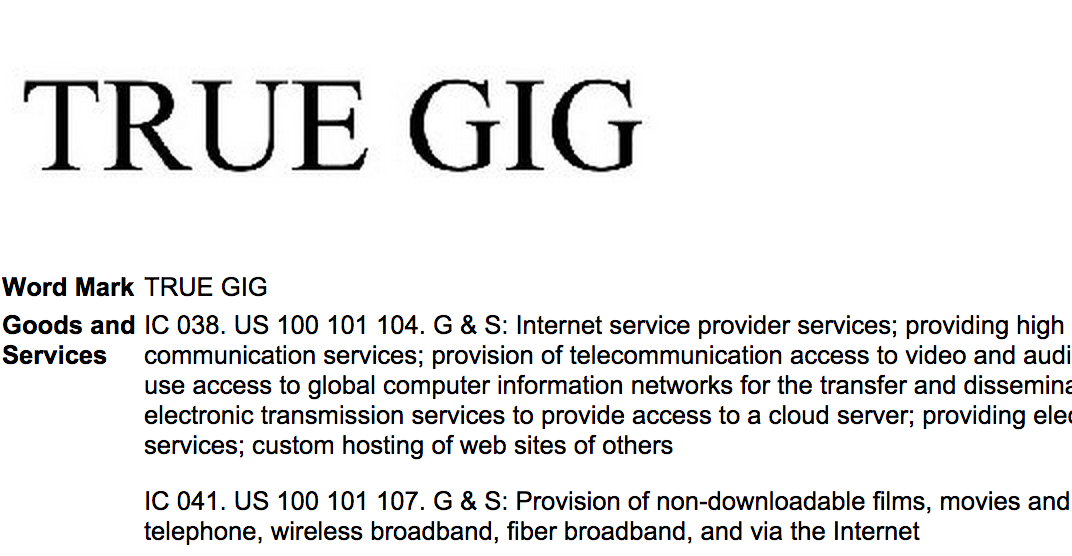It’s not surprising that a company that thought “Xfinity” sounded like a good name for a broadband Internet service and not a strip club with a cheeseball neon sign has come up with an eye-roll-worthy name for the ultra-high speed broadband tier it has yet to reveal. [More]
broadband
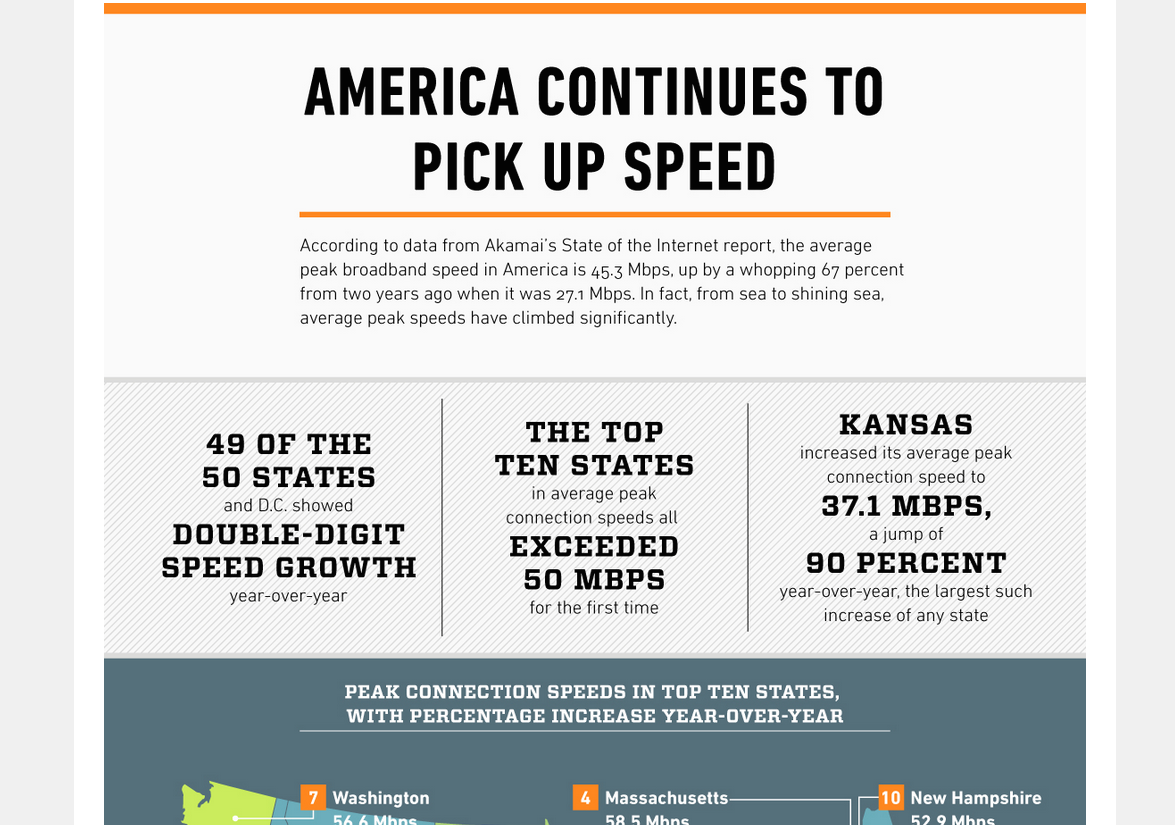
Here’s The Latest Bit Of Astroturfing From The Cable Industry About Broadband Speeds
Once again, the latest survey of the current state of broadband around the globe [PDF] shows that, while improving, the U.S. still lags behind other developed countries, like South Korea, Japan, Switzerland, Latvia, and Romania in average broadband speeds and access to decent Internet. But leave it to the cable industry to try to convince America that everything is A-OK, and to try to do so without mentioning that this message is being brought to you by the cable industry. [More]
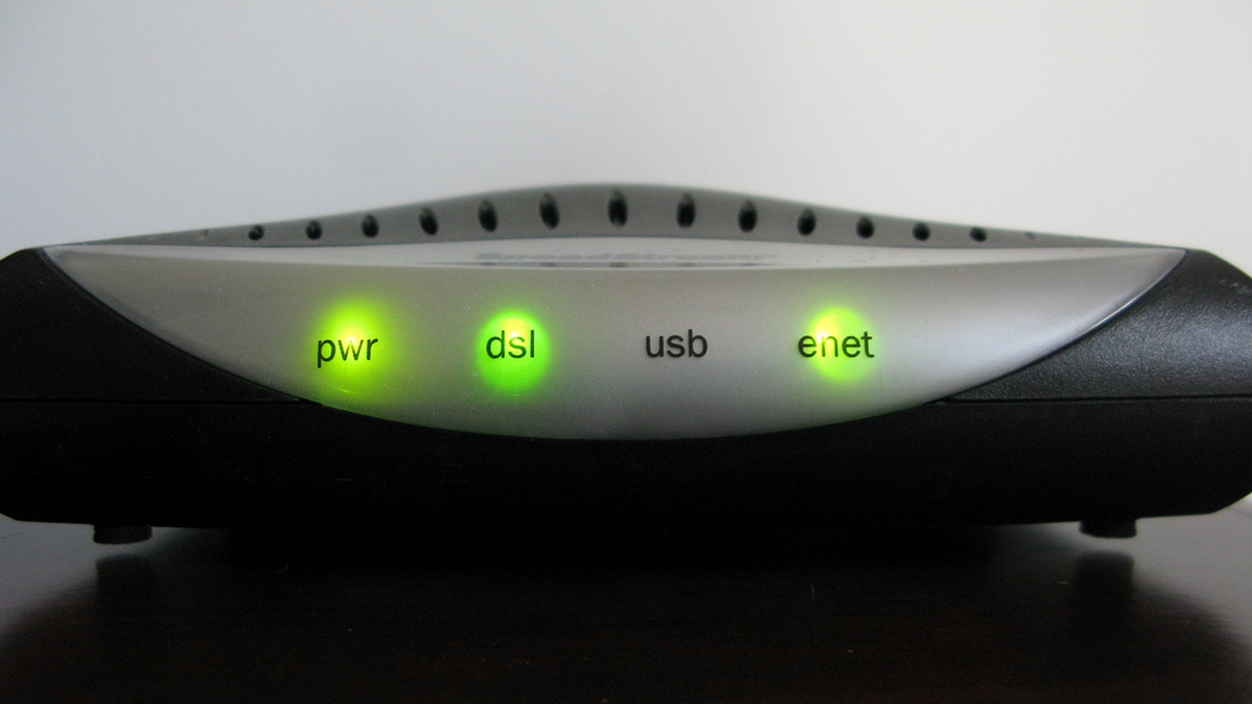
FCC Chair: Current Definition Of Broadband Isn’t Fast Enough
The FCC’s current definition of “broadband” Internet is 4Mbps downstream and only 1Mbps up. These were adequate speeds in a world where you occasionally watched a grainy YouTube video, but they don’t reflect the needs or uses of most consumers, and those benchmarks are only going to grow more irrelevant with each passing day. FCC Chair Tom Wheeler admitted as much to Congress yesterday. [More]

AT&T and Verizon: Your Home Network Doesn’t Actually Need To Be As Fast As Your Phone
The FCC has been all about broadband this year. In the mix with net neutrality and the Comcast/TWC merger, they’re also taking on the dearth of broadband competition consumers face and even thinking about redefining the meaning of the term to a higher minimum network speed. But AT&T and Verizon aren’t having it: according to comments they’ve filed with the FCC, a wired network connection too slow for a solid Netflix connection, and slower than the 4G your phone uses, should be perfectly satisfactory for a bandwidth-hungry nation. [More]
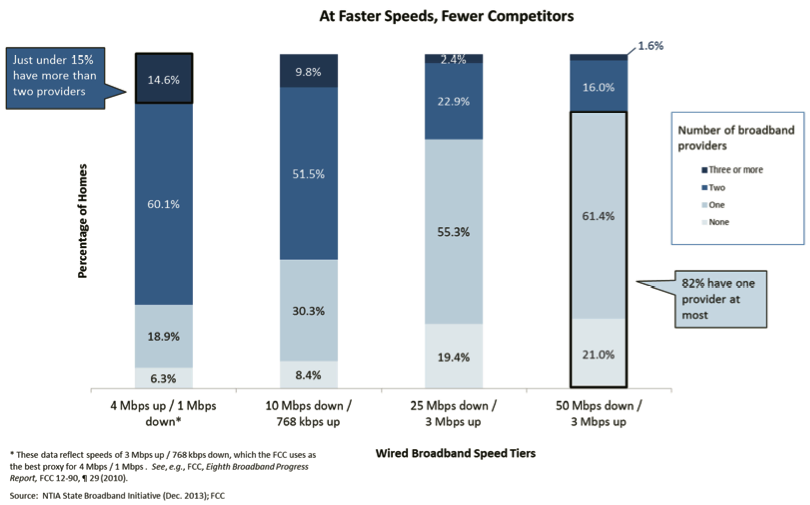
FCC Chair Admits There Is Nowhere Near Enough Broadband Competition
In spite of what Comcast would have you believe, there is very little actual competition among broadband providers in the U.S. And this morning, FCC Chair Tom Wheeler publicly explained the woeful state of competition for America’s Internet users. [More]
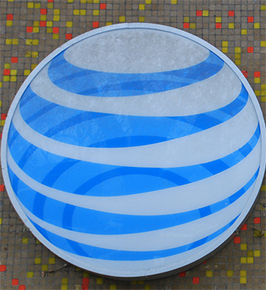
AT&T: Municipal Broadband Should Be Banned Anywhere Private Companies Might Want To Do Business Later
It’s no secret that AT&T and other big ISPs are no fans of municipal broadband projects. There are laws on the books in many states that block the expansion of municipal networks, but the FCC is considering using its authority to override those laws and let communities build networks if they wish. AT&T is also no fan of this proposal. In fact, says AT&T, not only should public networks be barred anywhere there is already a private option, but also they should be barred in any place there might possibly be a plan to build a private option in the future. [More]
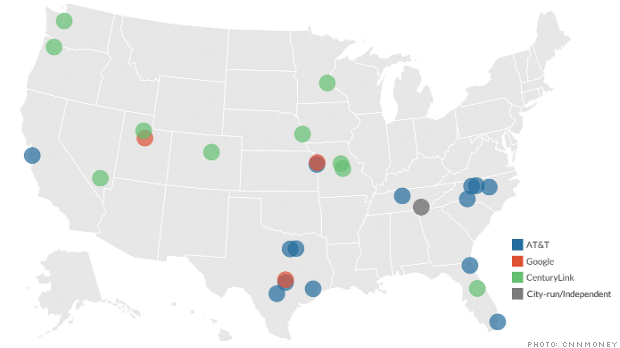
Two Big Reasons CNN Money Is Only Half Right About Gigabit Broadband Expansion
Broadband internet coverage in the United States is still pretty uneven. While some, mainly rural, communities are scrambling to connect to the 21st century using slow, old, and unreliable tech, some urban areas are dashing forward at over 1000 Mbps. The list of lucky cities with gigabit connections is growing, as CNN Money reports, but it’s not growing in the way that CNN indicates. [More]

FCC Needs To Revise Outdated Definition Of Broadband
Right now, the current FCC definition of broadband includes any service with data speeds of at least 4 Mbps downstream and only 1 Mbps up. In the days before HD video streaming, that was an adequate definition, but those numbers haven’t kept pace with the reality of new technologies or consumer demand. That’s why the FCC has announced that it is looking into possibly revising its standards for broadband. [More]

Comcast Happy To Sing Comcast’s Praises To Regulators For Making Tiny Improvements To Broadband Access Program For Low-Income Families
Comcast yesterday announced a few changes to its Internet Essentials program. The program is, in theory, great. It aims to provide broadband internet access to low-income households, allowing families to stay connected to critical jobs, education, government and social services, and social media just like everyone else. And while Comcast is indeed taking baby steps to let more families access Internet Essentials, they are mainly taking great strides to shout aloud about every incremental, insufficient change in the hopes that regulators will nod along. [More]
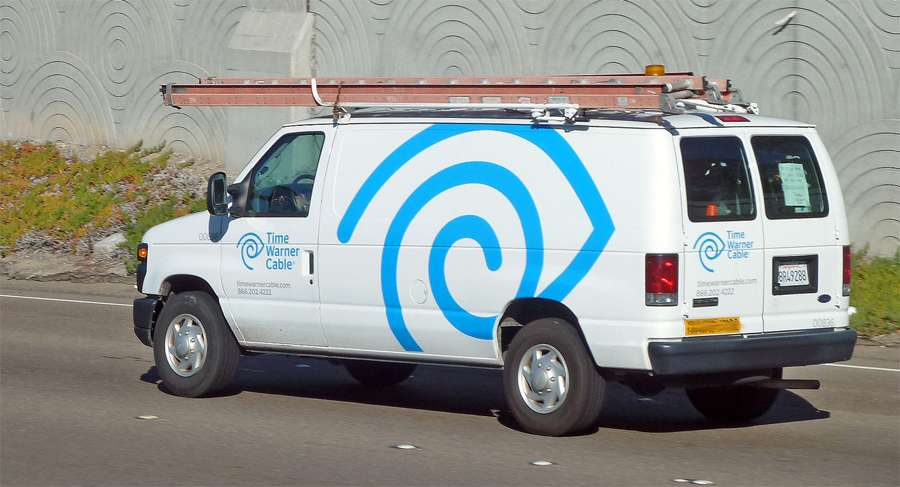
Time Warner Cable Keeps Charging Customers More For Internet Because They Can
Time Warner Cable customers have been seeing their bills climbing at a pretty steady clip over the past few years. For all that TWC might complain about needing more negotiating power with content companies, though, the cable half of the equation isn’t the problem. Instead, all that nickel-and-diming comes right from the cord most consumers won’t be able to cut: broadband access. [More]

Now You Can Tell The FCC What You Think About Bans On Municipal Broadband
Last week, a pair of city-operated utility companies petitioned the FCC, daring Commission Chair Tom Wheeler to make good on his promises to overturn ridiculous, industry-backed state laws that ban or severely limit municipal broadband. The FCC has opened the issue up for public comment, so it’s time to make your opinion heard. [More]

FCC Chair Now Has Two Chances To Overturn Bans On Municipal Broadband
Thanks to deep-pocketed telecom lobbyists, 20 states in the U.S. have laws that either ban or heavily restrict local governments from creating or investing in public broadband networks, and more states are trying to jump on that ban-wagon. For months, FCC Chair Tom Wheeler has been saying that his agency could use its authority to preempt these anticonsumer laws and give municipalities the ability to invest in Internet infrastructure if they want. Now it’s time for Wheeler to put up or shut up, as the FCC ponders petitions from groups in two states. [More]
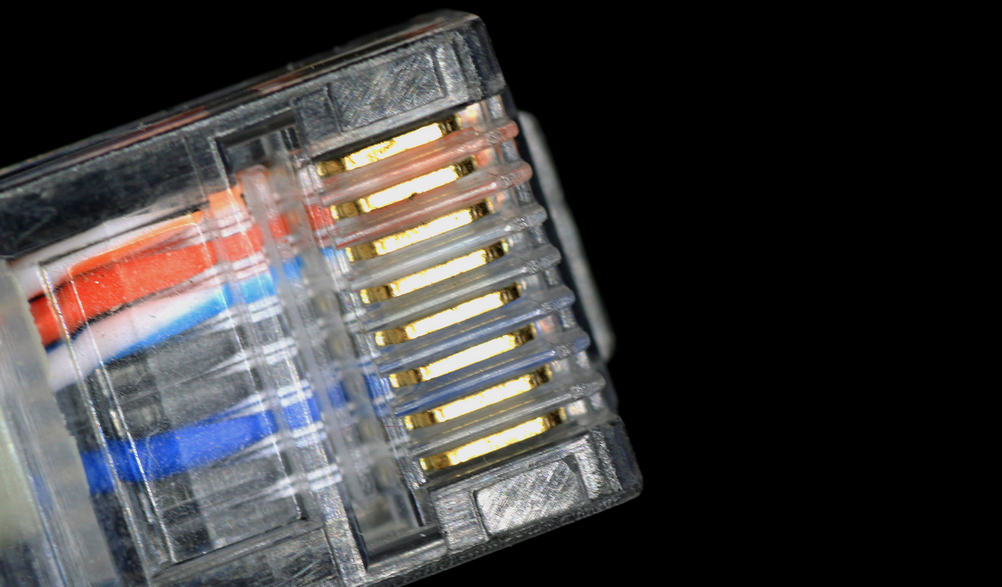
FCC Reminds Internet Providers & Wireless Companies To Follow Transparency Rules… Or Else
Earlier this year, a federal appeals court gutted the part of the 2010 Open Internet Rules dealing with so-called net neutrality. What this decision didn’t affect are the rules requiring that providers of broadband Internet access services disclose accurate information about their service offerings to the public. And so today, the FCC is sending out a reminder to ISPs (both fixed and mobile) that they need to follow the transparency guidelines or face the possibility of penalties. [More]

Ambitious Dutch Company Proposes $70 Billion Broadband Network For Los Angeles, Whole Country
The city of Los Angeles last year started taking proposals for a plan to build out a gigabit fiber broadband network for every business and residence in the city. Only one company publicly shared their full proposal publicly, and it doesn’t exactly make the future of L.A. fiber look bright. [More]
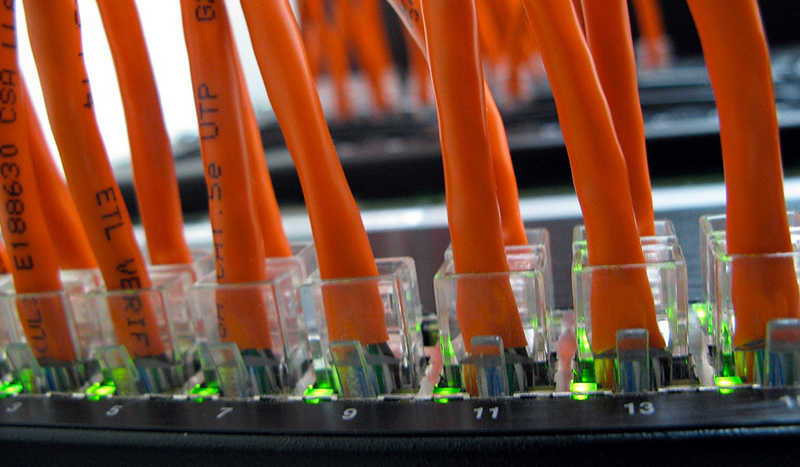
FiOS Goes Symmetrical: Verizon To Offer Same Upload, Download Speeds
FiOS users who get annoyed over how long it takes to upload your stuff to YouTube, rejoice! Verizon announced today that they’re upping their upload speeds to match their download speeds. It’ll take a few months, but eventually subscribers will be able to put stuff on the internet at the same speed they pull stuff down from the internet. [More]
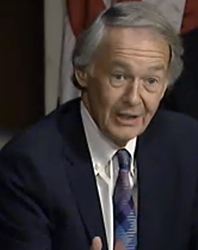
Senator Challenges Comcast, AT&T Execs On Opposition To Municipal Broadband
The Senate Commerce Committee held hearing today on broadband competition, media consolidation, and the future of online video transmission. Among the witnesses were Comcast exec David L. Cohen and AT&T bigwig John T. Stankey. During the hearing, Massachusetts Senator Ed Markey directly asked the two about competition from municipal broadband providers. [More]
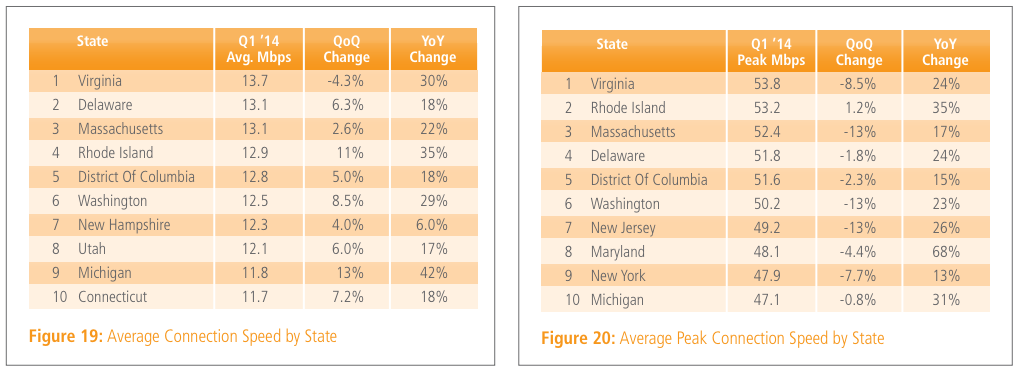
American Broadband Speeds Improve, Still Not In Top 10 Globally
On this weekend when we celebrate the founding of the United States of America, we can rest assured that our broadband speeds are certainly improving, up 31% in just a year, according to a new survey of global broadband connections. Much like the recent World Cup showing, that’s something to be proud of, but still doesn’t put us among the world’s elite. [More]
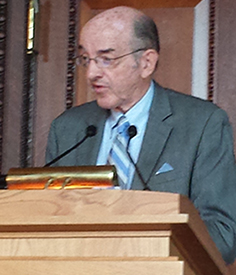
Former FCC Commissioner: “We Should Be Ashamed Of Ourselves” For State of Broadband In The U.S.
In Washington, DC today, a group of internet industry executives and politicians came together to look back on the Telecommunications Act of 1996, and to do a little crystal-ball gazing about the future of broadband regulation in the United States. Former FCC commissioner Michael Copps was among the presenters, and he had sharp words for the audience about the “insanity” of the current wave of merger mania in the telecom field and the looming threats of losing net neutrality regulation. [More]


